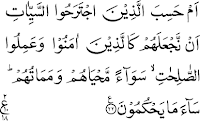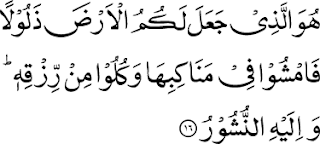"...I would like to briefly address on the unfortunate incident which has transpired last week (04-05 September 2015) at Rivière des Anguilles in the South of Mauritius. The Jamaat Ul Sahih Al Islam and this humble self strongly condemn what some strong-headed and senseless “Muslims” have done at the Amma Tookay Temple, wrecking some idols found there under alcohol influence.
Islam is a tolerant religion, and preaches no compulsion in religion and respect for others. Both Allah, our Glorious Creator and our perfect role model, Hazrat Muhammad (pbuh) have both condemned such acts because, when one, in occurrence a person who says he is Muslim abuses and wrecks the idols of other faiths on his own, then he is in fact inviting the other party to abuse Allah and Islam and to wreck the perfect teachings of Islam.
And secondly, alcoholic drinks are absolutely forbidden in Islam. Thus the acts of these people are not Islamic at all. Instead they are presenting a dirty image of Islam and its teachings. May Allah protect His Deen-e-Islam from such senseless people who are only “Muslims” in name and who portray Islam as tolerating violence and terrorism. Ameen..." (From the Friday Sermon of September 11, 2015)
Never Insult Others
It is very unfortunate to see what had happened in the south of Mauritius,
as I told you last week how a few idiots spoiled the image of Islam and its
teaching. Was all that they did Islamic? First, by the despicable way they behaved,
they disobeyed the commandments of Allah and His Messenger (pbuh). So these
kinds of people cannot say that they are Muslims.
 I ask those who have the
habit of giving fatwas (judgements) on
who are Muslims or not, therefore, with such vile actions – and from the
teachings of Islam vis-à-vis other religions – can these people still be
considered Muslims?
I ask those who have the
habit of giving fatwas (judgements) on
who are Muslims or not, therefore, with such vile actions – and from the
teachings of Islam vis-à-vis other religions – can these people still be
considered Muslims?
The religion of Islam has never granted permission to
insult, provoke or denigrate people or their beliefs.
Rather Islam teaches
Muslims that tolerance in religion (Islam) is a virtue, and therefore, a Muslim
by the belief he professes, he must be someone friendly and who ensures protection
for the life, honour and property of his countrymen.
He must not do anything
wrong to harm the reputation of others and should respect the beliefs of others
and their places of worship.
The Holy Prophet (saws) said that the best Muslim is the one whose hand and
tongue do not harm anyone.





























